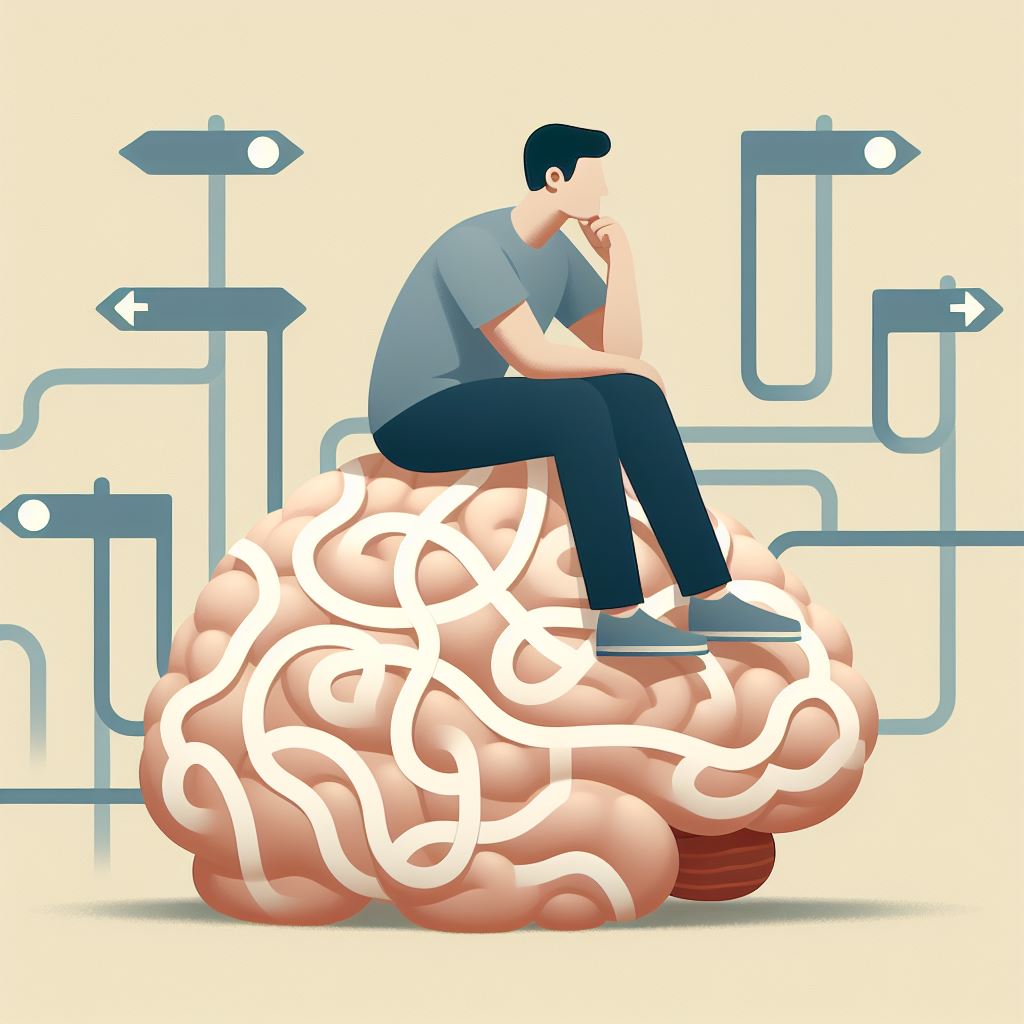
People with social anxiety often hold deep beliefs that they are “unlikable” and “inferior” – and this creates a feedback loop between their beliefs, their actions, and their anxiety.
One common theory about social anxiety is that it’s influenced by negative belief patterns, especially the belief that you are “unlikable” or “inferior” person.
In a new study, psychologists investigated whether those with social anxiety disorder hold these negative beliefs about themselves.
They measured people’s beliefs by presenting them with a logical argument (or “syllogism”) and then asking them if the argument was logically valid.
For example, a person is presented with an argument such as:
- Premise: A train is faster than a car
- Premise: A plane is faster than a train
- Conclusion: A plane is faster than a car
Of course most people are willing to say the conclusion is true because it’s both logically valid and it confirms to our beliefs about the real world (most people understand that a plane is faster than a car).
However, sometimes a person is presented with an argument such as:
- Premise: A car is faster than a train
- Premise: A train is faster than a plane
- Conclusion: A car is faster than a plane
This is a logically valid argument (even though the conclusion is technically false).
But when participants are asked if this is a “logically valid” argument, they are more likely to say “no” because it doesn’t confirm to their real world beliefs (because obviously, a plane is faster than a car).
By presenting people with these logical arguments, scientists can measure the believability of the conclusion statement. In the same way, we can use logical statements like these to measure the believability of different beliefs related to social anxiety.
For example, when a socially anxious person is presented with the argument:
- Premise: I’m less likable than Joe
- Premise: Joe is less likable than Jane
- Conclusion: I’m less likable than Jane
Individuals with social anxiety have no problem saying this statement is “true,” because not only is it logically valid but it also confirms their real world beliefs about themselves.
However, sometimes a socially anxious person is presented with the argument:
- Premise: I’m more likable than Joe
- Premise: Joe is more likable than Jane
- Conclusion: I’m more likable than Jane
Although this statement is logically valid, individuals with social anxiety have a harder time rating this statement as “true” when compared to the control group.
This finding shows that people with social anxiety often have negative beliefs about themselves that are stuck in their minds. And even when presented with contrary evidence, they are still likely to cling to those negative beliefs.
People with social anxiety have trouble shaking their negative beliefs about themselves, even when they know it’s not logical, rational, or valid.
Here’s a video I made about the study and my thoughts on it:
The idea that people with social anxiety have “negative beliefs” about themselves is certainly not a new one – but this study confirms it in an interesting way.
This is likely one of the big reasons Cognitive-Behavioral Therapy – a type of therapy focused on identifying unhealthy beliefs and changing them – has shown to be effective treatment for social anxiety disorder.
Of course, this doesn’t mean that overcoming social anxiety is only about changing your thinking. Social anxiety is a complex condition that can be influenced by many different factors: biology, environment, childhood, past experiences, etc.
However this study does provide more support to the idea that changing your thinking can be one tool to help you overcome your social anxiety.
How belief patterns feed into social anxiety
This diagrams perfectly illustrates how your belief patterns feed into your social anxiety, creating a self-fulfilling cycle:

As you can see, before we enter a social situation we already have a preconceived belief of what’s going to happen and how that person is going to perceive us.
This belief then influences how you act in that situation and how comfortable you are. For example, if you’re thinking “This person isn’t going to like me,” then you’re more likely to be reserved and put up a wall – maybe even be a bit rude and impolite.
And because you acted this way, this leads the other person to respond back in a similar fashion because they figure “Oh well, this person doesn’t like me. Screw them!”
Thus, you have a bad experience, and that only confirms and reinforces your negative belief patterns. You begin thinking to yourself, “You see? I knew they weren’t going to like me. I was right! I suck!”
This becomes a vicious cycle of Beliefs → Actions → Results → Beliefs. And to break that cycle, you need to at least put some focus on your current beliefs and how they are influencing your behavior.
Enter your email to stay updated on new articles in self improvement:
